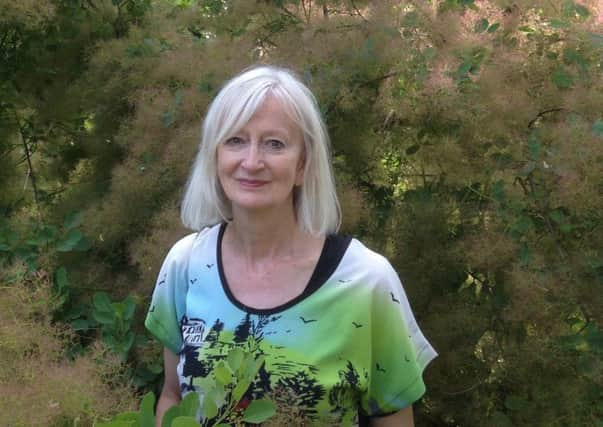Book review: Blood, by Maggie Gee


The narrator is 6ft 1in Monica Ludd, acting deputy head of a comprehensive (the head is afraid of her, but the kids love her). She is one of six children and they have all been messed up one way or another by their monstrous dad, Albert, a corrupt, cruel and bullying dentist. When Albert fails to turn up at a party organised as a memorial for the youngest of the family, Fred,forced by dad into the army and killed in Afghanistan, Monica goes a bit crazy, as people do in what may pass as black comedies. She buys a big axe and heads for dad’s home, intending – well, you know what she’s intending. Some other axe-wielder has, however, got in before her. There is dad in bed, blood everywhere, undoubtedly, it seems to her, dead meat.
Whereupon the acting deputy head behaves like a half-wit. She runs away, taking her axe with her, but leaving her car so that the police will have no trouble finding her and regarding her as a suspect. She has of course to be like this or there would be no plot. Fortunately, her narration is interrupted by another voice which leaves us in no doubt who actually bashed the dentist and why. She is fortunate also in being questioned by a strangely laidback policeman, soon unprofessionally involved with her. Nevertheless, she goes on the run, though she doesn’t run very far and her disguises are likely to call attention to her rather than divert it from her. Sometimes her siblings seem ready to help her, sometimes not. Then it turns out that dad isn’t dead after all. If he believes Monica was his attacker, will he seek revenge? And so on. The question is: what’s to be done about dad? Once you’ve accepted that this is a black comedy, you are likely to arrive at the answer before the Ludd family themselves.
Advertisement
Hide AdAdvertisement
Hide AdThere’s little point complaining that this novel bears little relation to any reality, despite its carefully composed setting in the Ukip heartland and Monica’s later classroom encounter with an incompetent Islamist terrorist. This is all decoration. Even the Ludd brothers and sisters, though carefully described, exist only by way of Monica’s extravagant, even fevered, creation of them. This is at least an airing of the old and ultimately unanswerable philosophical questions: do other people exist?; and if so, how do we know them? The novel lives through Monica’s remarkable voice, and though often her version of what she does or thinks makes her appear crazy as a fox, there are also acute observations and moments of good sense. It’s credible that this erratic, quick-tempered, self-pitying and indignant women might actually be a good teacher – for difficult children anyway. This is one of the few shafts of realism in this extravagant novel.
There are serious questions buried but poking up their heads: to what extent is a child’s future determined by its upbringing? Will parental violence be repeated in the next generation? Albert, it is revealed, almost in passing, himself endured a deprived and brutal childhood. Did this make him a vilely domineering father? Was it on account of his brutality that Monica, shortly before the attack on her father, was heard to shout “I’ll kill you, you f***ing bastard”?
Perhaps a black comedy offered in the voice of a loud-mouthed exhibitionist isn’t the best way to explore such questions, engaging though Monica’s voice undoubtedly is. On the other hand, what’s the alternative? Monica is absurd; she’s given to self-pity as well as anger; she deceives herself rather than others. Even to herself, she is sometimes a figure of fun. There’s a lot of enjoyment to be had from this novel, even if you may end up puzzled by just what the author intended.
Blood, by Maggie Gee, Fentum Press, 323pp, £9.99